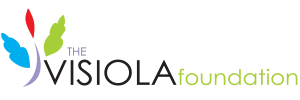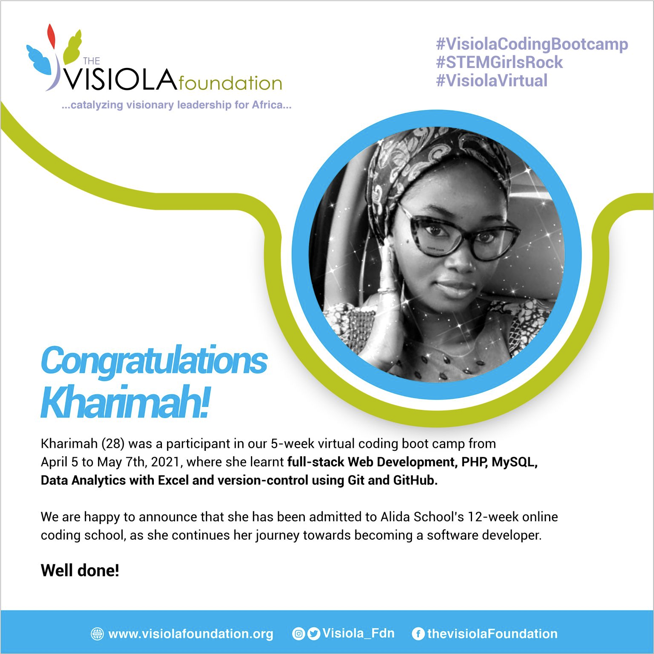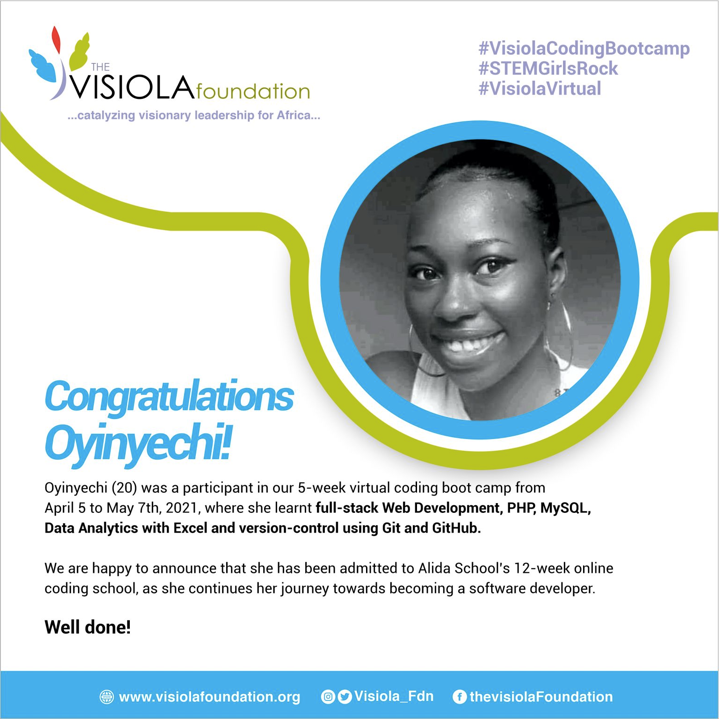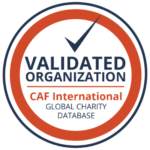the visiola foundation e-newsletter
Issue Q2-Q4, 2021
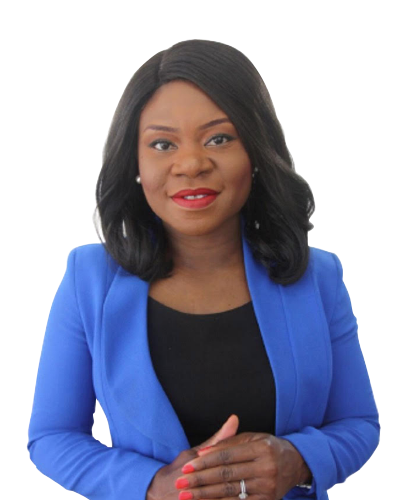
Ladé Araba
Founder and President of the Visiola Foundation
Founders' Corner
Happy New Year, with our best wishes for a healthy 2022!
2021 was a hectic year for us and we continued running virtual programs as the COVID-19 pandemic unfolded. Although this restricted our ability to reach all the students in the 20 government secondary schools (GSS) where we work, we provided internet data bundles that enabled 179 students to participate. They reported an improvement in their academic performance, as our support gave them an advantage when many students were out of school. We were also pleased to receive 469 applications from women in Ghana, Kenya, Liberia, Nigeria, Sierra Leone, South Africa, Uganda, and Zambia to participate in our Coding Boot Camp for Women. We ran two cohorts with a total of 75 participants. We were delighted to see many of our graduates gain admission to competitive internships and other training programs, while others secured employment. In addition, we were recognized by the International Telecommunications Union (ITU) as a winner of the Generation Connect Challenge for our proposal to provide educational learning materials to marginalized children. The ITU and the African Telecommunications Union (ATU) further recognized our After-School STEM Clubs for Girls (ASCG) and Coding Boot Camps (CBC) for Women for encouraging home grown ICT solutions to local problems.
We ended the year by running our first in-person program since March 2020. Our Accra STEM Camp for Teenage Girls welcomed 40 girls from eSwatini, Ghana, Nigeria, Rwanda, Togo, Ethiopia, and Zimbabwe. In addition, I have been reflecting on the issue of youth unemployment and job creation in Africa for the past few months. Here are my thoughts on an “Africa Jobs Plan” to create millions of high-quality jobs for the region’s teeming youth.
Africa's Jobs Plan - Creating Millions of Jobs for Africa's Teeming Youth
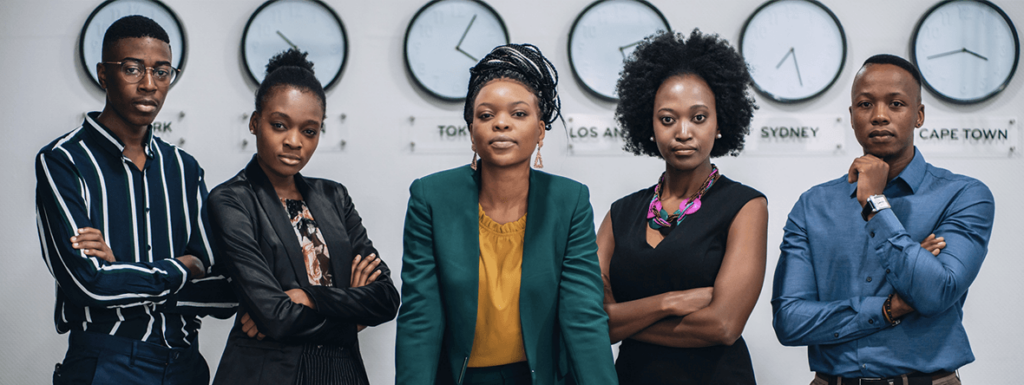
Those who know me, know that I wear my love for Africa on my sleeve. It is therefore little surprising that a conversation which I had in September 2021 about unemployment and Africa’s jobs crisis has had me thinking for months of how to tackle this wicked challenge. The International Labor Organization (ILO)
estimates Africa’s 2020 unemployment rate as 6.6% with a large variance between countries – from a low 0.8% in Burundi to a high 28.7% in South Africa. Youth unemployment in the region stood at 10.6% in 2021. Each year, 12 million people enter the labor force, but only 3 million find employment. These statistics do not indicate the percentage of those in vulnerable employment and those who are underemployed. Where does one begin to truly solve this problem? I like to start with the factors of production.
In economics, the factors of production are the resources used to create goods and services. They include land, labor, capital, and entrepreneurship. The exploitation of land (comprising natural resources) has been the primary focus across the African continent over the past five decades. Unfortunately, its management has remained basic, with the core objective of simply earning rent. In recent years, attention has shifted to entrepreneurship. However, the entrepreneur can only succeed (i.e., earn a profit and be financially sustainable) by combining the other factors of production
It is that much more difficult in the absence of skilled labor and the necessary capital goods (infrastructure, machines, tools etc.). So how do we maximize the factors of production to create jobs in Africa? Below are my two broad action points to build the requisite labor and capital to underpin this plan. Anyone with funding and political will can move beyond the rhetoric to assiduously support efforts to address these two factors.
With an average population growth rate of 15%, Africa’s working age population will reach 1 billion people by 2050 (or 25% of the global labor force). According to the graph below, the next generation of African workers will not be productive! An economy where the average worker achieves full health and education potential (requirements for employability and productivity) will score a “1” in the index. Most African countries are currently clustered below 0.5.
Read the full opinion editorial here.
Warm Regards,
Ladé
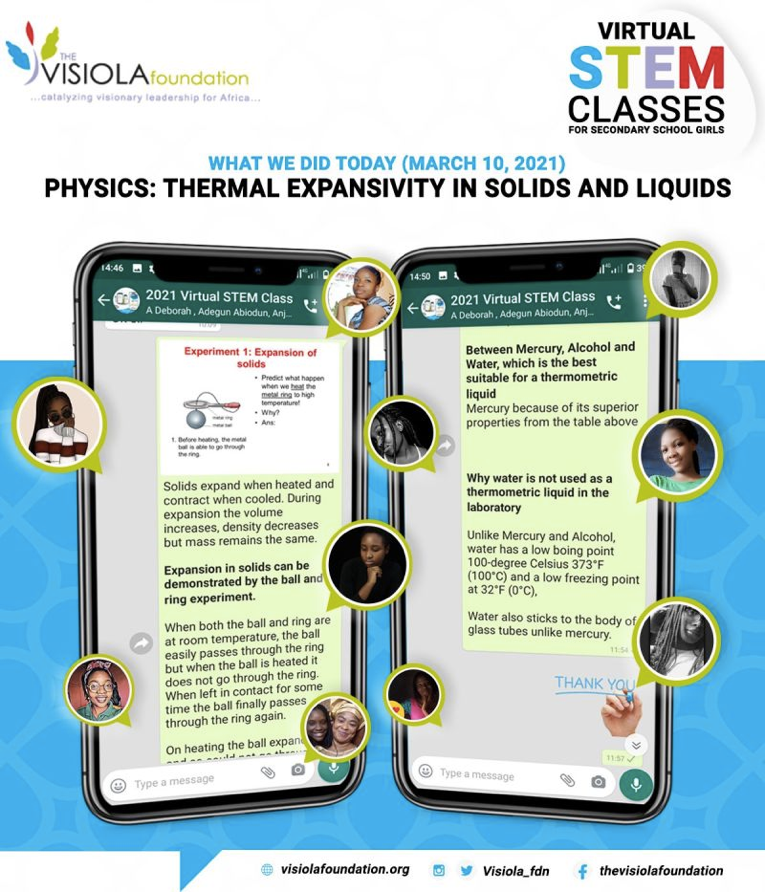
26 STUDENTS PARTICIPATE IN VIRTUAL STEM CLASSES
We resumed our virtual STEM Classes via WhatsApp and Google Classroom to provide continued access to education to students in government secondary schools. We focused on teaching topics from the national curriculum in Biology, Math, and Physics. In Math students learnt Indices and Logarithms of Numbers, Matrices, Determinants, and Geometric Progressions. In Biology they learnt variations in living organisms (morphological variations), the mammalian tooth structure, types and functions. In Physics, they learnt Thermal Expansivity in Solids and Liquids, as well as the equilibrium of forces and harmonic motion.

10 WOMEN GRADUATE FROM COHORT 1 OF VIRTUAL CODING BOOT CAMP
We had a diverse cohort from Nigeria, Uganda, and Zambia for our first virtual Coding Boot Camp for Women. Students learnt Introduction to HTML, Introduction to CSS, Introduction to JavaScript with HTML, JavaScript Variables and Strings, JavaScript Alerts, Introduction to Backend Development( Apache Server with XAMPP), PHP – Form Processing (POST GET REQUEST), PHP MyAdmin – Creating Database, Creating Table, CRUD Operations – PHP HTML, PHP – Syntax, Echo Statement, Print Statement, Logical Operators, LOOPS, PHP with HTML and JavaScript (JQuery), PHP and MySQL, CRUD Operations – PHP HTML, Introduction to Excel for analytics, Connecting to Data Sources (SQL), Cleaning Up and transforming Data, and GIT – Terminal Command-line tools.
The final projects included a psychometric testing web app, an online library management webpage, and an online train ticket reservation system. The winning team was from Uganda and Zambia with their online library. They all worked very hard and we are so proud of them.
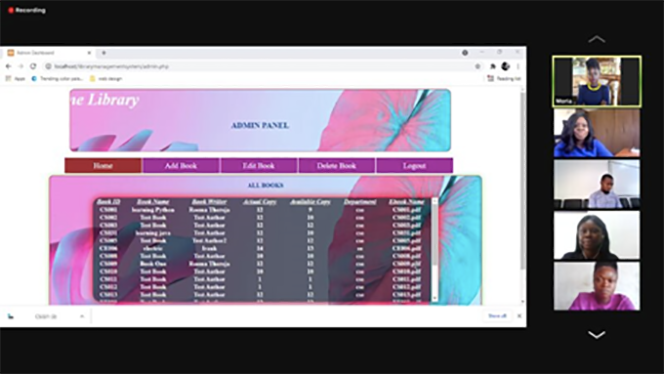
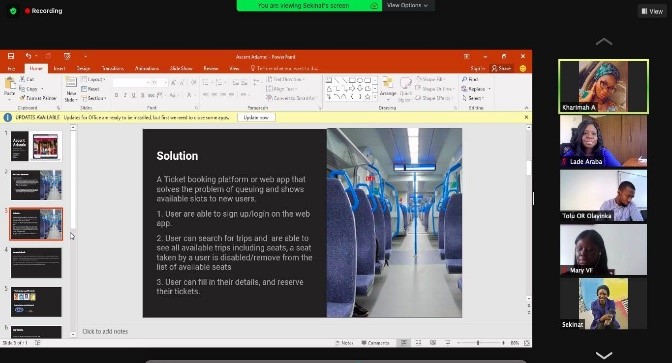
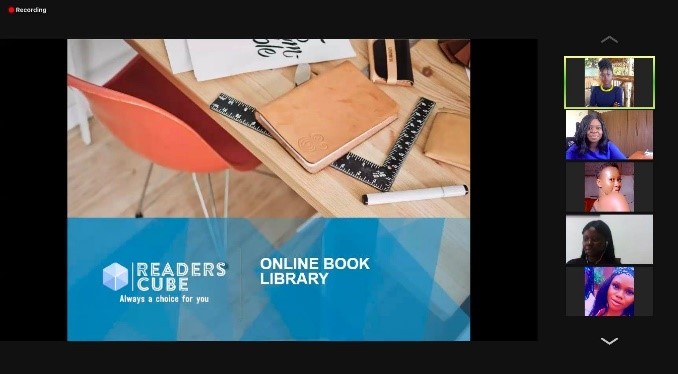
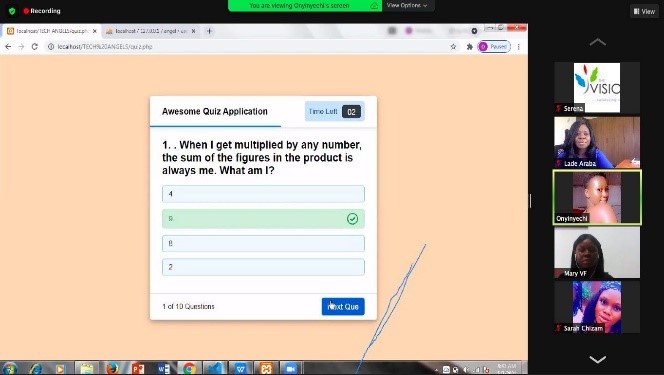
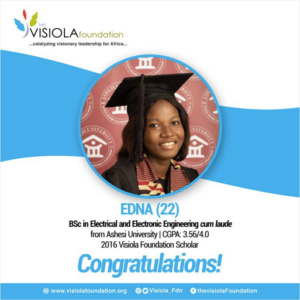
Edna at Ashesi University
2016 SCHOLAR GRADUATES CUM LAUDE FROM ASHESI UNIVERSITY
We congratulate our 2016 Scholar, Edna Yelipoie, for receiving a First Class BSc in Electrical and Electronic Engineering from Ashesi University. She finished with cum laude honors. She graduated in 2020, but the ceremony was postponed due to the COVID-19 pandemic. It finally took place virtually in May 2021 when Edna formally received her certificate and proceeded to work for Huawei Technologies. We are very proud of her!
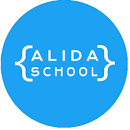
CODING BOOT CAMP GRADUATES ADMITTED TO THE ALIDA SCHOOL
Virtual Coding Boot Camp graduates, Onyinyechi (20) and Kharimah (28), were competitively admitted to Alida School’s 12-week front-end web development program. We are proud of them and we wish them well as they continue their journeys towards becoming software developers.
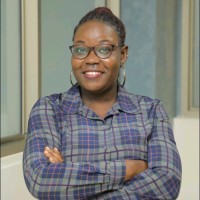
CODING BOOT CAMP GRADUATE SECURES JOB AT HARRIS INTERNATIONAL LTD
Rebecca (26), a Cohort 1 graduate of our virtual Coding Boot Camp for Women who is based in Uganda, secured a full-time position with Harris International. She reflects on her experience below.
“2020 was a rough year for me, and I believe some of us might have felt that too. It was the year I decided to set goals for personal development amidst the prevailing COVID-19 pandemic.
1. I joined a mentorship class Project Girls 4 Girls Uganda to build my confidence in August 2020 and graduated this year 2021.
2. I enrolled for my MBA even when I wasn’t sure of my tuition source in September 2020.
3.I decided to transition my career into SAP and was selected for the SAP YPP East Africa in November 2020. And graduated this year in 2021 February.
4. Then to enrich the new skills I gained from the SAP YPP, I applied for a scholarship at the Visiola Foundation to attend their virtual Coding Boot Camp which put me at advantage to understand what I never imagined I would be doing now.
Read her testimonial here.
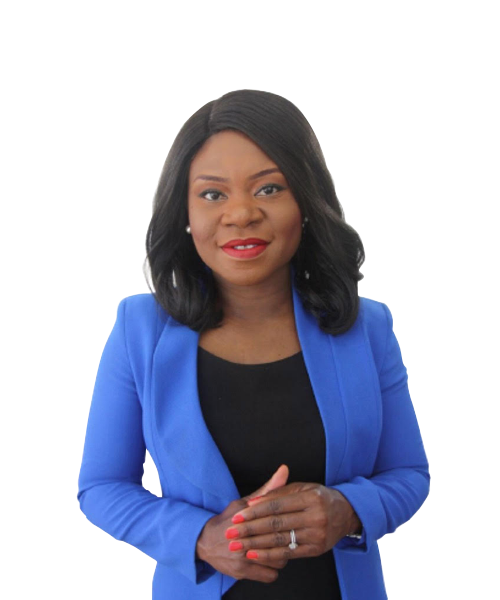
Ladé Araba
Founder and President of the Visiola Foundation
EQUALS IN TECH INTERVIEWS LADE ARABA ON TECHNOLOGY AND EMPOWERMENT
Ladé Araba is the co-founder and president of the Visiola Foundation, which educates, trains, and mentors African girls from disadvantaged communities in the science, technology, engineering, and math (STEM) fields, with the goal not only of giving the girls a chance to follow life-changing career paths, but also of supporting individuals, families and communities by nurturing the endless potential of African youth to drive sustainable development in the region.
With a passionate commitment to development finance, Ladé is also the Managing Director for Africa at Convergence Finance, a Non-Executive Director on the Board of African Risk Capacity (ARC) Ltd, and she sits on the Investment Advisory Council of the Equality Fund. For over 18 years, Ladé has built strong partnerships with private and public clients in varying fields such as infrastructure project finance, renewable energy, and the intersection of technology and education to strengthen gender equality and lead Africa’s long-term socio-economic transformation.
We asked Ladé to tell us more about her personal and professional history, and how she got started playing a key role in supporting African girls and young women as they explore the benefits of technology.
Let’s start with your background. What role did STEM play in your childhood, adolescence, and early career?
I was a vivacious kid growing up in Rome, Italy. I had learned to be flexible and adapt to diverse situations. I enjoyed serving as a language and culture interpreter between the adults in my life and my third culture. I seamlessly slipped between languages and created a bridge of understanding between my parents, school, and others in our sphere of influence. However, I never quite fit in anywhere, but my imagination and creativity allowed me the fluidity to switch back and forth as needed.
Like my peers, I enjoyed playing video games and carrying out experiments. I was good in science and I wanted to become a pediatrician. Curiously, I was actively discouraged from pursuing a medical degree because I was a girl and would eventually get married and it would be difficult to combine a family and a career. Unfortunately, I allowed this message to create self-doubt and I dropped my pre-med major in college and switched to business.
Read the full interview here: https://www.equals.org/post/lade-araba-profile
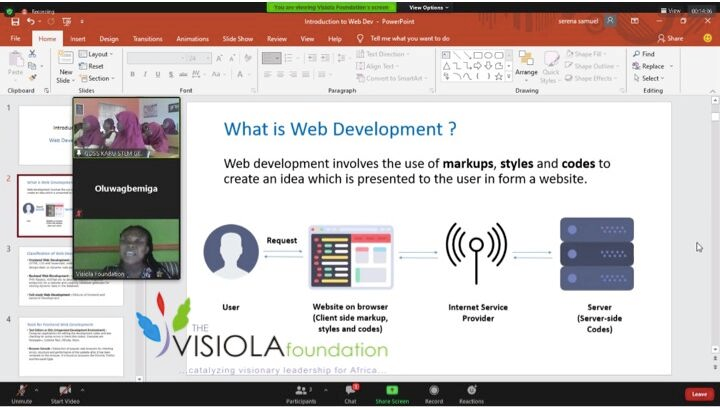
After School STEM Clubs
153 STUDENTS COMPLETE AFTER-SCHOOL STEM CLUBS
00 junior and senior secondary school girls in 10 government secondary schools (GSS) in Abuja resumed participation in our After-School STEM Clubs for Girls (ASCG). They were introduced to web development and Introduction to HTML and HTML editors, HTML Basics (Documents, headings, paragraph), HTML Formatting, Elements and Styles, HTML links, and images. HTML objects div, span, table, lists, and CSS Introduction and Syntax CSS Background, Text, and Fonts. The program ended with an inter-school competition where students presented projects that they had designed and developed to showcase their skills. The final projects included: the design of a single-page school clinic, design of a single-page school website, design of a single-page school website, and design of a single-page school website.
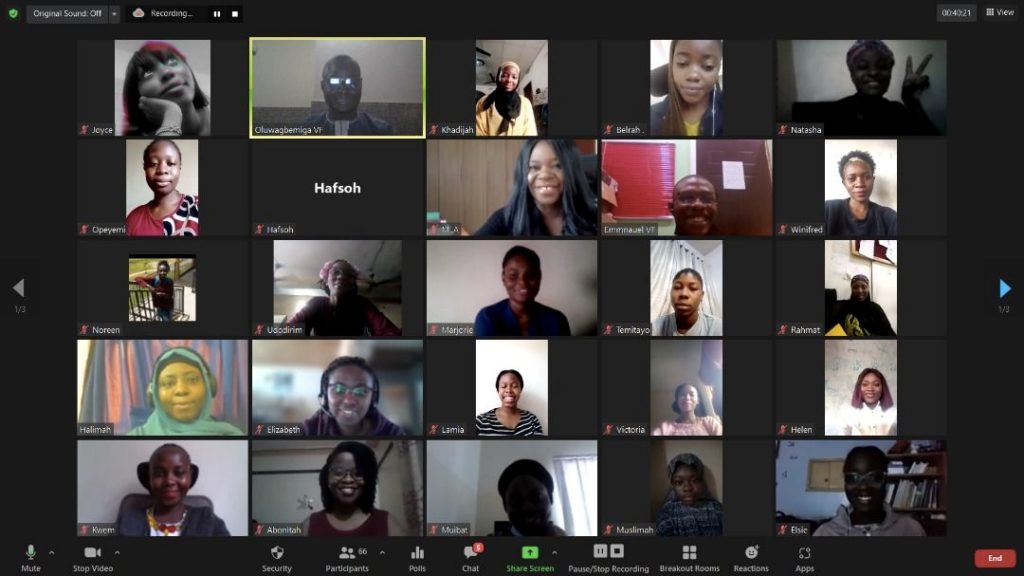
Coding Boot Camp Trains 65 Women
CODING BOOT CAMP TRAINS 65 AFRICAN WOMEN FROM 6 COUNTRIES
Cohort 2 of our 2021 Coding Boot Camp for Women learnt frontend web development, graphic design, UI/UX, and Github.
Ten teams presented their final projects to a panel of judges including Victoria Idang (Petroleum Engineer, Certified Content Creator, and UI/UX designer), Dauda Barry (Computer Scientist/Founder of Alida Schools), Blessing Malumi (Software Engineer, Microsoft), and Tope Salami (Program Officer at TechHerNG).
Team kid’s Haven came first with their movie review website for kids and teenagers
Group 1 – FEMCOIN, a cryptocurrency converter webpage.
Group 2 – Fine-recipes, a food website.
Group 3 – KUNTours, an African tour website.
Group 4 – CruiseMart, an auto sales website.
Group 5 – FurnisHub, a furniture website.
Group 6 – Techmeet, an event booking webpage.
Group 7 – TheBigEAT, a restaurant webpage.
Group 8 – VoT-IN, an electronic voting website.
Group 9 – Kid’s Haven, a movie review website for kids.
Group 10 – Yath Pharmacy, an online pharmacy with home delivery.
We are grateful to our partner, GSR, for supporting this program. 88 young women participated in both cohorts, with 74 successfully completing all the requirements and receiving certificates. We had students from Ghana, Kenya, Nigeria, South Africa, Uganda, and Zambia.
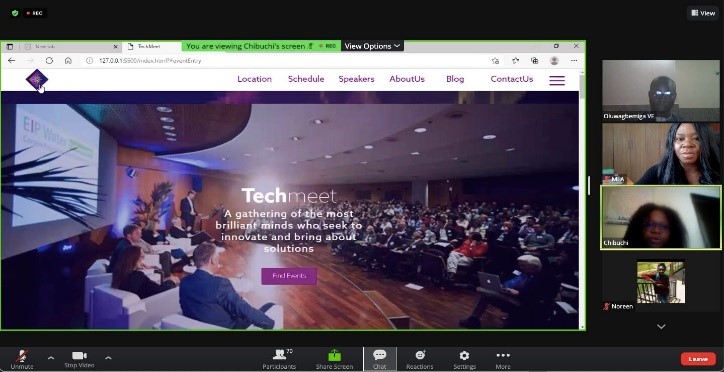
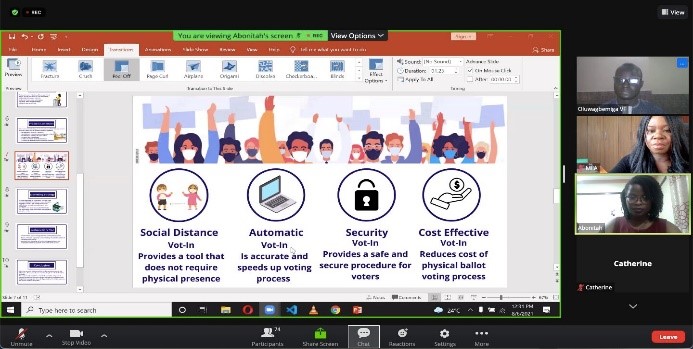
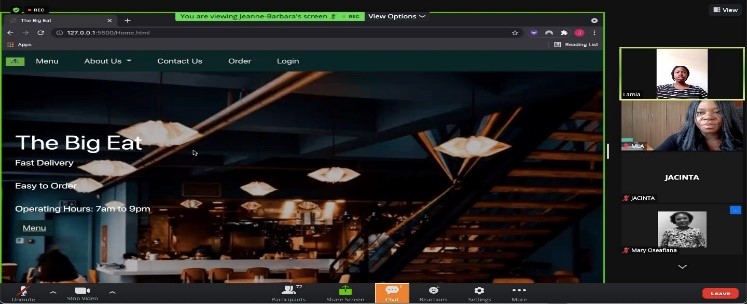
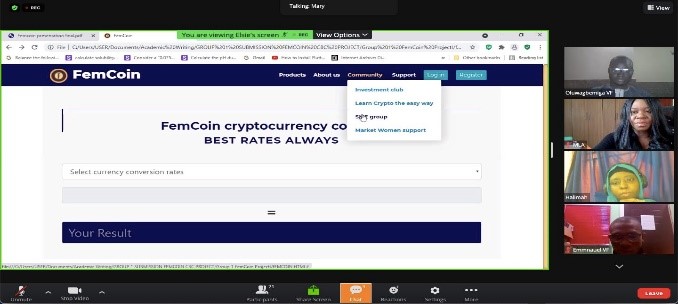
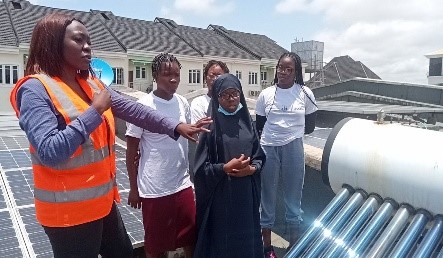
Students complete internship at Blue Camel Energy
FOUR STUDENTS COMPLETE INTERNSTHIP AT BLUE CAMEL ENERGY
Hearty congrats to Maryam (14), Angel (15), Uchechimere (17), and Faith (18) for coming 1st in our 2021 virtual STEM Summer Camp for Teenage Girls! They impressed our judges with their unidirectional delivery robot. We are grateful to Blue Camel Energy for granting them a six-day internship prize! They enjoyed learning about solar power, solar PV products, and renewable energy. We see future female engineers loading!
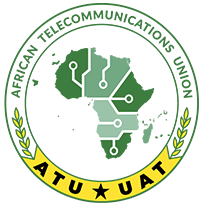
THE VISIOLA FOUNDATION WAS RECOGNIZED BY ATU AND ITU
Lorem ipsum dolor sit amet, consectetur adipiscing elit. Ut elit tellus, luctus nec ullamcorper mattis, pulvinar dapibus leo.The African Telecommunications Union (ATU) and the International Telecommunication Union (ITU) have partnered to run the second edition of the annual ATU Africa Innovation Challenge under the banner, “Best ecosystem practices in Africa enabling youth ICT innovation.” This is in recognition of the importance of digital innovation and the need for an enabling environment to tackle challenges facing the youth in Africa
“The event further recognised seven best practices by ecosystem stakeholders across Africa. Those awarded were, After-School STEM Clubs for Girls and Coding Boot Camps for Women by the Visiola Foundation, Nigeria, Entrepreneurship, Innovation & Technology Development by Zetech University, Kenya, COVID-19 Project for Zimbabwe by African Surveyors Connect, Zimbabwe, Huria Innovation Hub by Open University of Tanzania, Innovation and Techno-preneurship Acceleration by St Joseph’s University of Tanzania, ICT in education by Adamawa Code Kids, Cameroon, and Woman DNS Academy by Internet Society, Benin Chapter.”
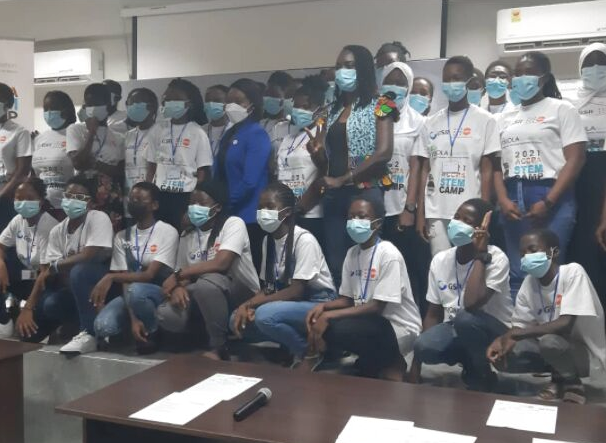
STEM Camp in Accra. The participants were from Ghana, Ethiopia, Togo and Nigeria.
40 GIRLS COMPLETE STEM CAMP IN ACCRA, GHANA
Forty adolescent girls from various African countries have completed a Science, Technology, Engineering and Math (STEM) camp designed to stimulate their interest in the fields of STEM and to expose them to the renewable energy options available in Ghana. The camp was organized by the Visiola Foundation with support from United Nations Population Fund (UNFPA) Ghana and GSR.
With the theme, “Renewable Energy and Robotics for Sustainable Development,” the students learnt the science and engineering of renewable energy and were tasked to build demo projects to generate electricity, using solar, hydro, and wind power. They further visited Redavia to learn more about solar PV installations.
Read the full story here: https://lnkd.in/evpMKBwJ
